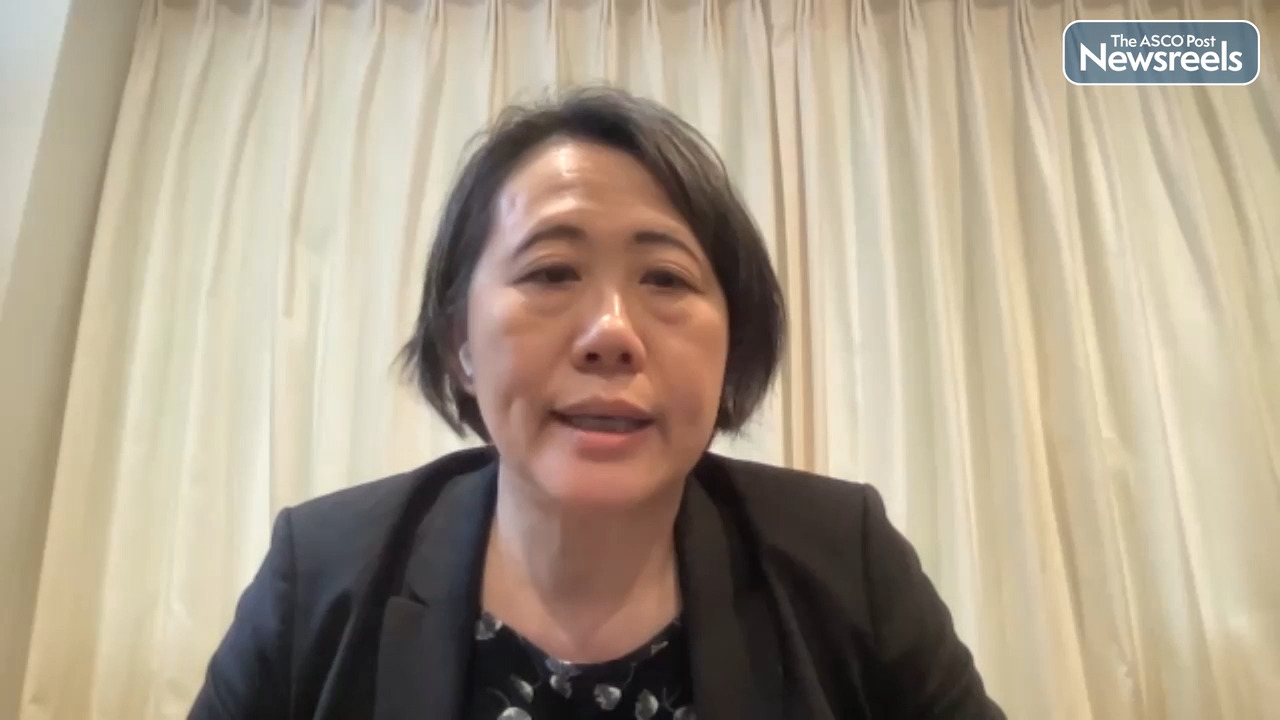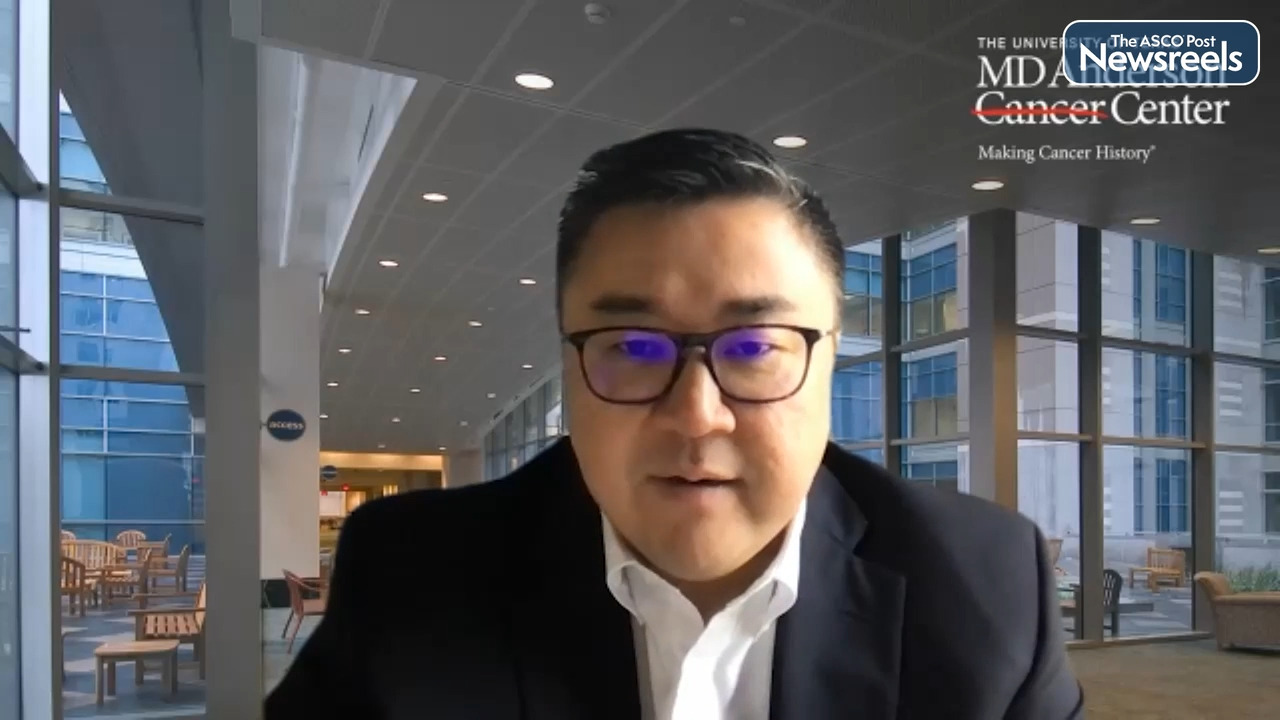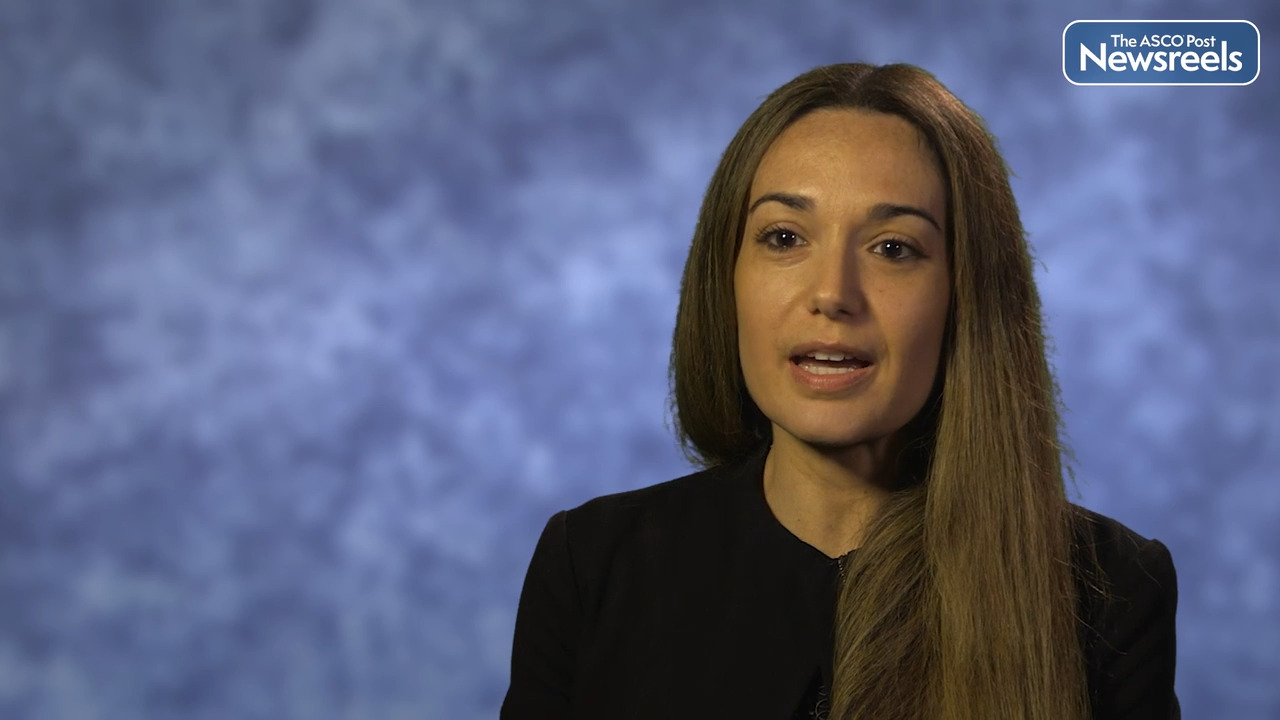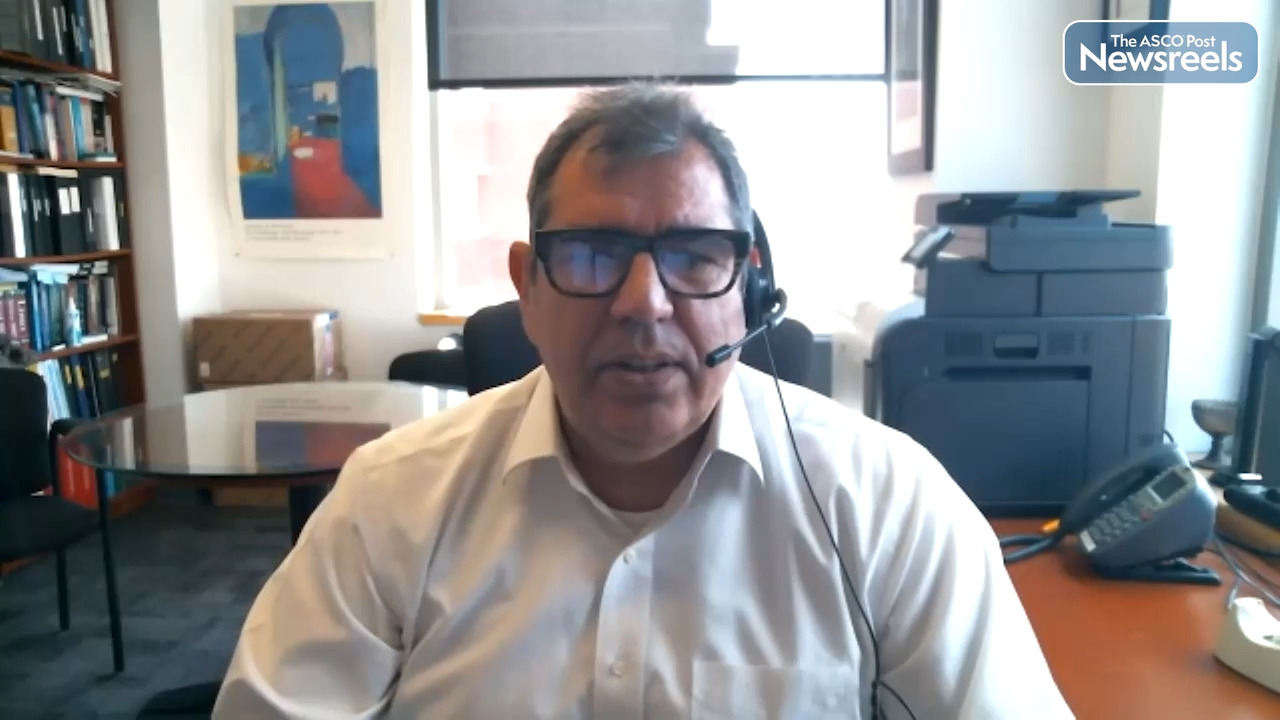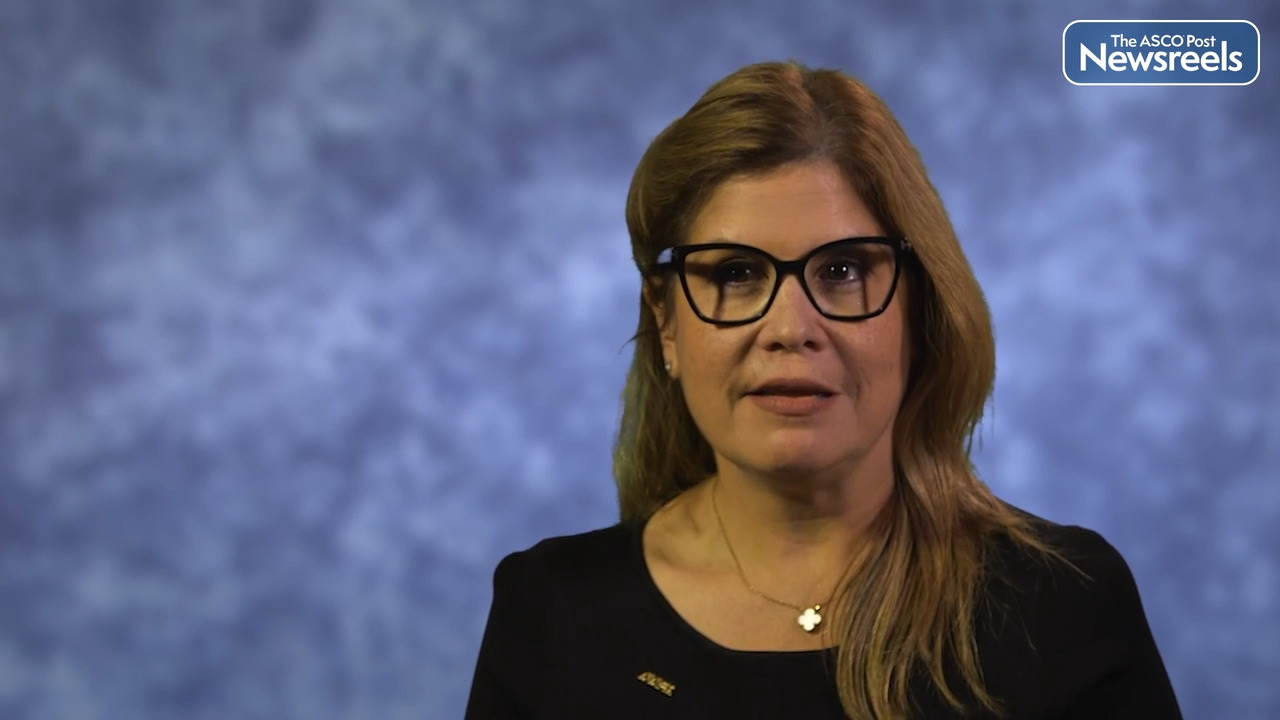Patricia M. LoRusso, DO, on Targeting KRAS: Clinical Successes and Challenges
AACR Annual Meeting 2022
Patricia M. LoRusso, DO, of the Yale University School of Medicine, discusses how patients may benefit in the coming decade from discoveries about agents that target KRAS, and how important the approval of sotorasib turned out to be, as well as other agents in the research pipeline. Dr. LoRusso also talks about the scientific advances in tackling inhibition (Abstract SY20).
The ASCO Post Staff
Lillian L. Siu, MD, of Canada’s Princess Margaret Cancer Centre, discusses biomarker-driven precision cancer medicine, the optimal sequencing of immunotherapy (IO) with standard treatments in curative settings, IO targets beyond PD-1/PD-L1 and combinatorial strategies, and next-generation adoptive cell therapies (Abstract PL06).
The ASCO Post Staff
Timothy A. Yap, MBBS, PhD, of The University of Texas MD Anderson Cancer Center, discusses how research is building on the success of first-generation PARP inhibitors in the clinic and the potential of novel potent PARP1-selective inhibitors, which may lead to improved patient outcomes. Given recent advances in drug discovery, says Dr. Yap, we now can go beyond PARP by drugging other key DNA damage response targets in the clinic, including ATR, WEE1, DNA-PK, RAD51, POLQ, and USP1.
The ASCO Post Staff
Tina Cascone, MD, PhD, of The University of Texas MD Anderson Cancer Center, discusses the findings of the phase II NeoCOAST study, which showed that combination immunotherapy with the anti–PD-L1 monoclonal antibody durvalumab and other novel agents resulted in numerically higher major pathologic response rates than durvalumab alone in the neoadjuvant setting for patients with early-stage resectable non–small cell lung cancer. Translational results also supported combination therapies over single-agent therapy (Abstract CT011).
The ASCO Post Staff
Nickolas Papadopoulos, PhD, of the Sidney Kimmel Comprehensive Cancer Center, discusses early detection as the key to reducing cancer mortality and the lack of tests for many malignancies. Liquid biopsies have the potential to screen for various tumor types, albeit with varying levels of sensitivity. Dr. Papadopoulos discusses his research on such blood tests, following patients prospectively to find the best combination of genetic and epigenetic biomarkers to increase sensitivity (Abstract PL02).
The ASCO Post Staff
Marcia R. Cruz-Correa, MD, PhD, of the University of Puerto Rico Comprehensive Cancer Center, discusses a way to possibly transform cancer outcomes by teaming up basic scientists, clinical researchers, and community advocates to work together, decode the complexity of cancer, and find points at which to intervene in the development of tumor cells. One strong focus is on communities disproportionately affected based on their genomic ancestry, geographic location, and ethnicity (Abstract PL06).
